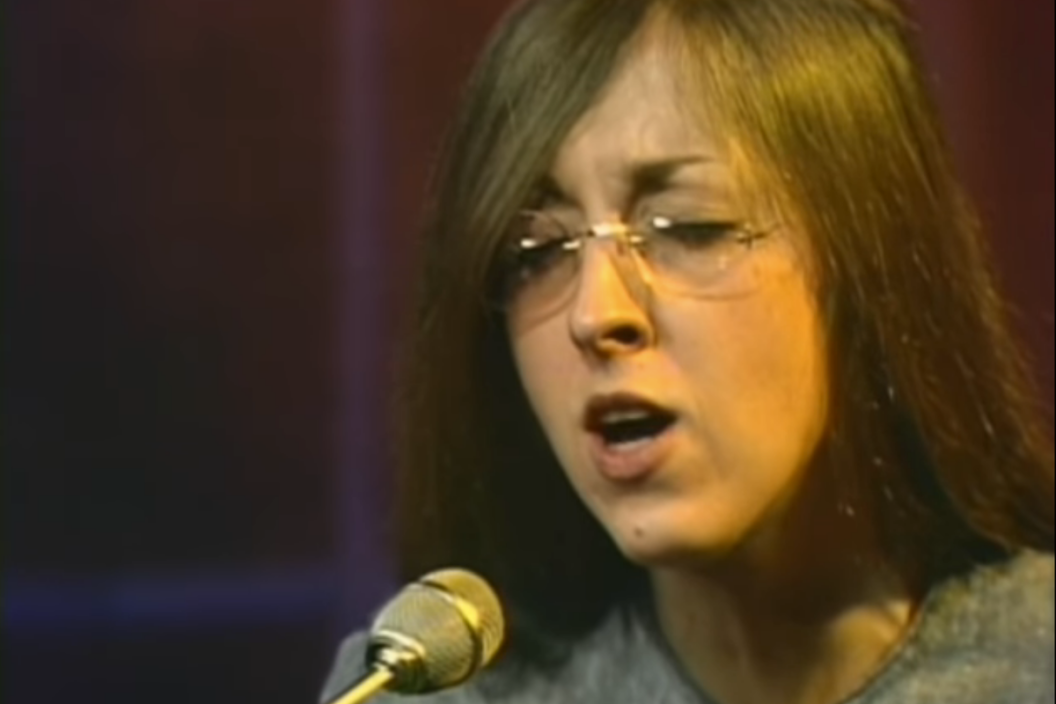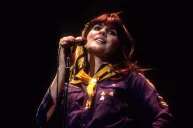Over the years, artists ranging from XTC's Andy Partridge to Americana singer-songwriter Jason Hawk Harris have namedropped '70s singer-songwriter Judee Sill as an influence on par with way-more-obvious tastemakers.
Videos by Wide Open Country
A little follow-up research reveals Sill as more than an obscure artist admired by a handful of wordsmiths. Beyond that, Sill briefly sat atop the folk-rock landscape in the early '70s as the first signee of David Geffen's Asylum Records, positioning her a few steps ahead of fellow West Coast artists Linda Ronstadt, Jackson Browne and The Eagles.
On the scratched side of the coin, a drug overdose ended Sill's tragic life on Nov. 23, 1979. Before, during and after a brush with fame that landed her in the studio with producer Graham Nash and on the cover of the Rolling Stone, drug addiction limited Sill's career trajectory. By the end of her 35 years on this side of eternity, Sill lived as a recluse, fighting the demons that make her gorgeous use of Christian imagery even more poignant.
The Los Angeles, California native learned to play piano at her father's Oakland-area bar. By 1969, a song Sill wrote, "Lady-O," was a minor hit for the Turtles.
Sill's short mainstream journey as a solo artist began with her 1971 self-titled album. The purpose behind the former church organist's first recorded collection of Biblical analogies still stirs up debate. Although The Billboard Guide to Contemporary Christian Music incorporates her into its wide-reaching narrative on gospel music, the Nash-produced "Jesus Was a Cross-Maker," classical-influenced "Abracadabra" and jazzy deep cut "Enchanted Sky Machines" tell a more metaphysical tale—the sort where Jesus and his disciples pilot UFOs. Intent aside, art borrows from the Bible all the time, and few artists in post-hippie popular music pulled off scriptural nods with as much mystery and majesty as Sill.
For Sills' first album, Asylum teamed her with an impressive supporting cast, such as guitarist David Crosby and backup singer Rita Coolidge. Sill's husband at the time, fellow Turtles collaborator Bob Harris, helped arrange songs that reflected her appreciation for Ray Charles, Bach and other disparate influences.
After a debut album that earned critical acclaim yet lacked commercial success, Sill took over arrangement duties for her sophomore effort, 1973's Heart Food. Her interpretation of scriptures once again dominated the lyrics of multiple standout tracks, including "The Kiss" and the countrified "There's a Rugged Road." It, too, failed to impact the charts, keeping Sill as a support act on tours and limiting financial backing from Asylum Records.
While reports on where this happened and what she said vary, a frustrated Sill (who was openly bisexual) cut short her struggling mainstream career after hurling homophobic slurs at Geffen.
Much like Mickey Newbury, Sill's lack of widespread fame has never equated a lack of influence over other songwriters. For example, Sill's former lover J.D. Souther wrote 2015's "Something in the Dark" about her. A year later, "Song for Judee" appeared on Neko Case, k.d. lang and Laura Veirs' case/lang/veirs album.
Read More: Artist to Watch: Laurel Canyon-Inspired Singer-Songwriter Amy Wilcox
In addition, Sill gets covered semi-frequently by like-minded creative types. Artists paying tribute over the years include Fleet Foxes ("Crayon Angels"), Warren Zevon ("Jesus Was a Cross Maker"), Shawn Colvin ("There's a Rugged Road") and Jane Siberry ("The Kiss").
Tracks from an unfinished third album were included on the double CD set Dreams Come True (Water Records, 2005). Songs Of Rapture And Redemption: Rarities & Live (Run Out Groove) followed in 2018.
Tribute album Down Where the Valleys Are Low arrives on March 12, 2021 and spotlights another gifted songwriter with little regard for genre boundaries, Bartees Strange.
Now Watch: The Real Elly May Clampett Left Hollywood to Sing Gospel Music
https://rumble.com/embed/u7gve.v8hbjp/




